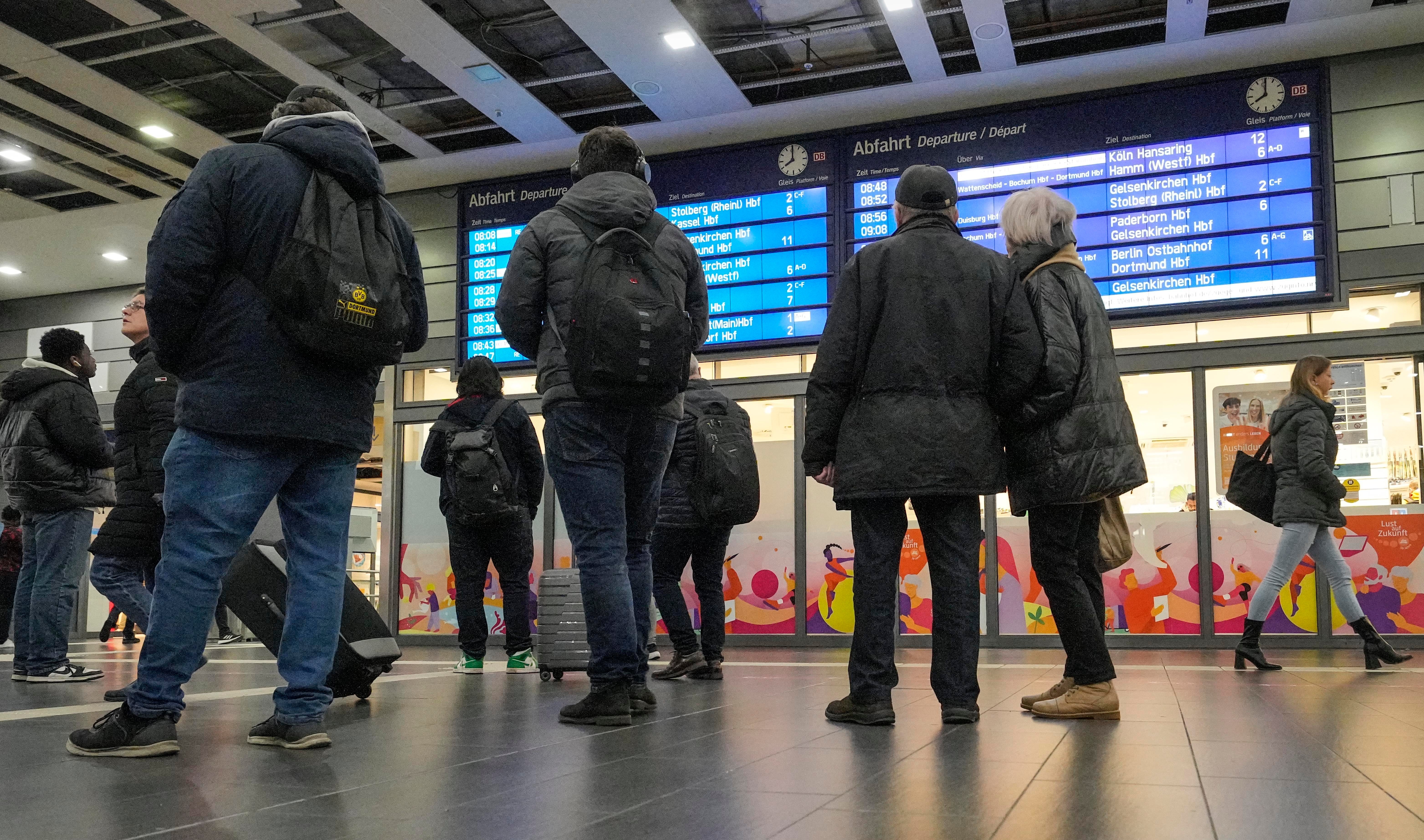Union representing German train drivers calls strike that will hit passenger services
A union representing German train drivers is calling its members to strike for 24 hours this week, following the breakdown of talks with the main national operator in what is shaping up to be an unusually difficult dispute over pay and working hours

A union representing German train drivers on Wednesday called its members to strike for 24 hours this week, following the breakdown of talks with the main national operator in what is shaping up to be an unusually difficult dispute over pay and working hours.
The GDL union said the strike will affect passenger services operated by state-owned Deutsche Bahn from 10 p.m. on Thursday until 10 p.m. on Friday. Freight trains will be hit from 6 p.m. Thursday.
The walkout follows a 20-hour strike on Nov. 16, when Deutsche Bahn ran a much-reduced long-distance schedule — as it has on previous occasions when GDL took industrial action. GDL's strength among drivers and some other railway personnel varies regionally, and some regional services run by private operators aren't affected by the dispute.
Limited “warning strikes” are a common tactic in German pay negotiations, but GDL may soon expand its action. On Nov. 24, GDL chairman Claus Weselsky declared that negotiations with Deutsche Bahn had failed after only two rounds of talks.
The union has already started a ballot of its members on fully fledged strikes, and plans to announce the result on Dec. 19.
The central issue is the union’s call for shift workers’ hours to be reduced from 38 to 35 hours per week without a pay reduction, a demand at which employers so far have balked.
GDL is seeking a raise of 555 euros ($600) per month for employees plus a one-time payment of up to 3,000 euros to counter inflation. Deutsche Bahn has said it made an offer that amounts to an 11% raise.
A dispute between the railway operator and a rival union, the larger and traditionally less aggressive EVG, was settled earlier this year after both sides accepted a proposal by arbitrators.
Bookmark popover
Removed from bookmarks